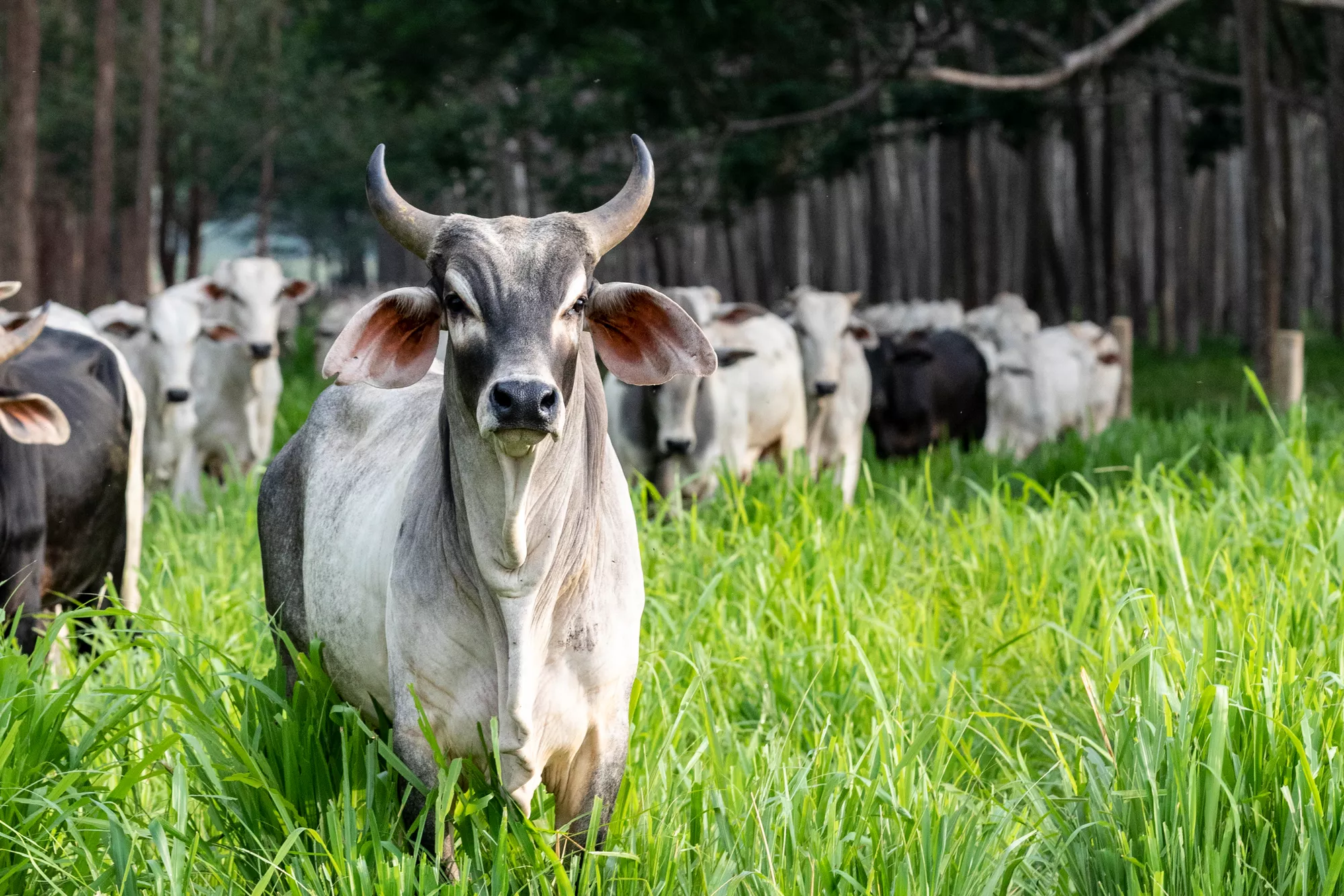Climate change affects every industry, but few feel its impacts as quickly as the fields and pastures where our food is grown. Around the world, cattle ranchers are working through the realities of rising heat, unpredictable rain and soils under strain — all changes that directly shape how livestock is raised and how land recovers. And with billions relying on accessible, nutrient-dense animal protein like beef, global food security rests on how cattle ranchers and other livestock producers respond to the pressures around them. Yet for far too long, producers have been underrepresented in climate discussions.
That changes with the United Nations Climate Change Conference (COP30), where for the first time in years, the message is clear: agriculture is ready to lead, and Brazil’s cattle ranchers are steering the conversation.
At COP30 in Belém, World Without Cows is sparking conversations about how farmers, scientists, policymakers and businesses can work together to achieve meaningful climate progress. Here, attendees from around the world are seeing World Without Cows and World Without Cows Brazil: The Battle for Balance, a new 20-minute companion film that highlights Brazil’s extraordinary potential to double food production without clearing a single tree through pasture restoration and other regenerative practices. (You can watch the companion film here.)
From the opening day of the World Farmers’ Organization’s COP30 Farmers’ Summit on Nov. 6 to exclusive screenings throughout the event, attendees from around the world are getting a firsthand look at how cows are not a problem to be solved, but can be part of the solution.
During a Nov. 12 Protein PACT panel in the COP30 Blue Zone, Dr. Mark Lyons, executive producer of World Without Cows, carried this message forward, emphasizing the need for animal agriculture to stay engaged in ongoing conversations about cattle, climate change and sustainable food production. (You can watch the panel discussion here.)
The Battle for Balance highlights what many around the world are only now beginning to see: the future of food in Brazil lies not in expansion, but in the restoration of the land it already has. . By restoring 40 million hectares of degraded pasture, the country could double food production without clearing a single tree.
This matters because, as the world’s top beef exporter, Brazil plays an outsized role in both global nutrition and climate change. In 2024, the country supplied 11.8 million metric tons of beef, which is enough to meet the annual consumption of nearly 2 billion people.
Restoring degraded land would allow the country to expand production while protecting the Amazon, one of Earth’s most critical carbon sinks. Few nations have the power to influence both food security and climate stability at this scale.
Across the country, producers are proving that sustainable growth is not only possible in Brazil, it’s well underway. In the past 20 years, beef productivity has increased by 70% while using 11% less land, which shows that ranchers are increasing output without expansion.
Under the Forest Code, producers are legally required to preserve between 20–80% of their land as native forest, depending on the biome. In some parts of Brazil, that means four out of five hectares must remain untouched. Guided by more than 8,000 environmental and climate laws, Brazilian cattle ranchers operate not only within these rules but with the conviction that the choices they make today will sustain the land and its yields tomorrow.
Every day, ranchers are adopting regenerative farming practices that improve both productivity and sustainability:

The world cannot meet climate goals or feed the global population, without more resilient cattle systems. Healthy pastures store more carbon. Better soil and water management make entire landscapes more resilient to droughts and heat. And when producers adopt rotational grazing and improved pasture systems, they not only increase animal productivity and herd health, but also reduce emissions, increase carbon capture, and lower the carbon footprint of beef.
This potential is being recognized at COP30, where we’re advocating for farmers worldwide who are tapping into their power to shape the future. For decades, their voices have been left out of climate conversations. With COP30 being held in the heart of Brazil, now is the time to bring Brazilian food producers into the global climate conversation. Global progress depends on collaboration, open dialogue and keeping science and solutions at the center.
By sharing both a 60-minute preview of World Without Cows and World Without Cows Brazil: The Battle for Balance across multiple COP30 events, we aim to spark dialogue that moves attendees from around the world to:
Brazil is making signifcant environmental progress, but it’s often overlooked by those who are far removed from the land they critique. As Embrapa researcher Mariana de Aragão Pereira says, “People talk about Brazil without knowing Brazil. They talk about the Amazon without ever having been there.”
That’s why this moment at COP30 matters so much.
The road to COP30 didn’t begin in Brazil. It’s the result of months of steady momentum—events, panel discussions, film screenings and global conversations aimed at elevating producer voices led us to Belém. From Climate Week NYC in September, where leaders challenged long-held assumptions about livestock and sustainability, to the FAO’s Global Conference in Rome, where World Without Cows drew a full house and sparked an hour-long discussion with scientists, policymakers and producers, this momentum confirms: there’s no path forward if agriculture doesn’t have a seat at the table.
These moments, along with dozens of meetings, partnerships and dialogues across Brazil and beyond, have built the foundation for what’s happening now at COP30. What unfolds in Belém will shape how the world thinks about cows, climate change and the future of food. And with so much at stake, inaction is the greatest risk we face.
Watch World Without Cows Brazil: The Battle for Balance and the trailer for World Without Cows, the feature-length documentary, to explore how cattle can be part of a sustainable future.
Receive notifications about the release date, new online content and how you can get involved